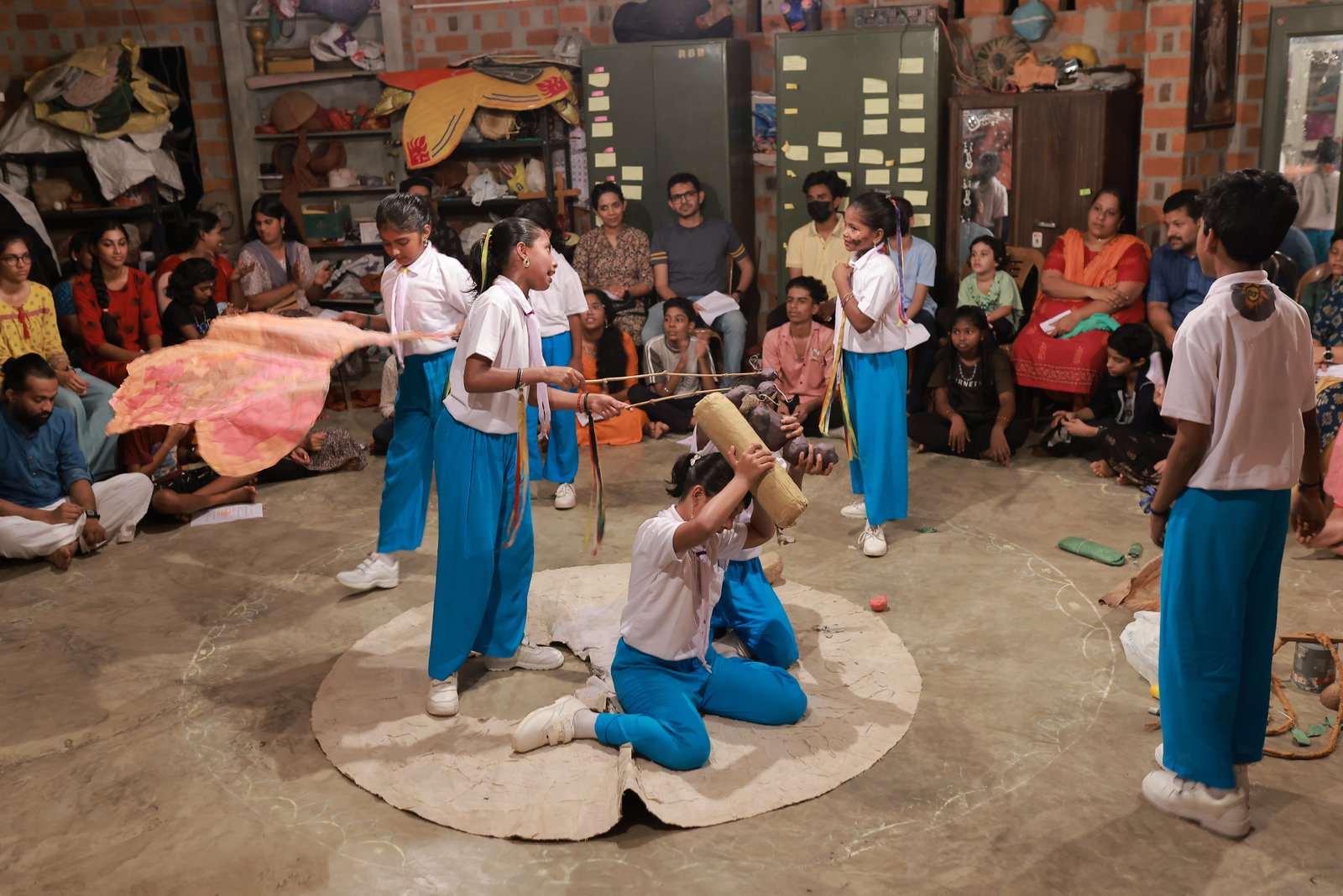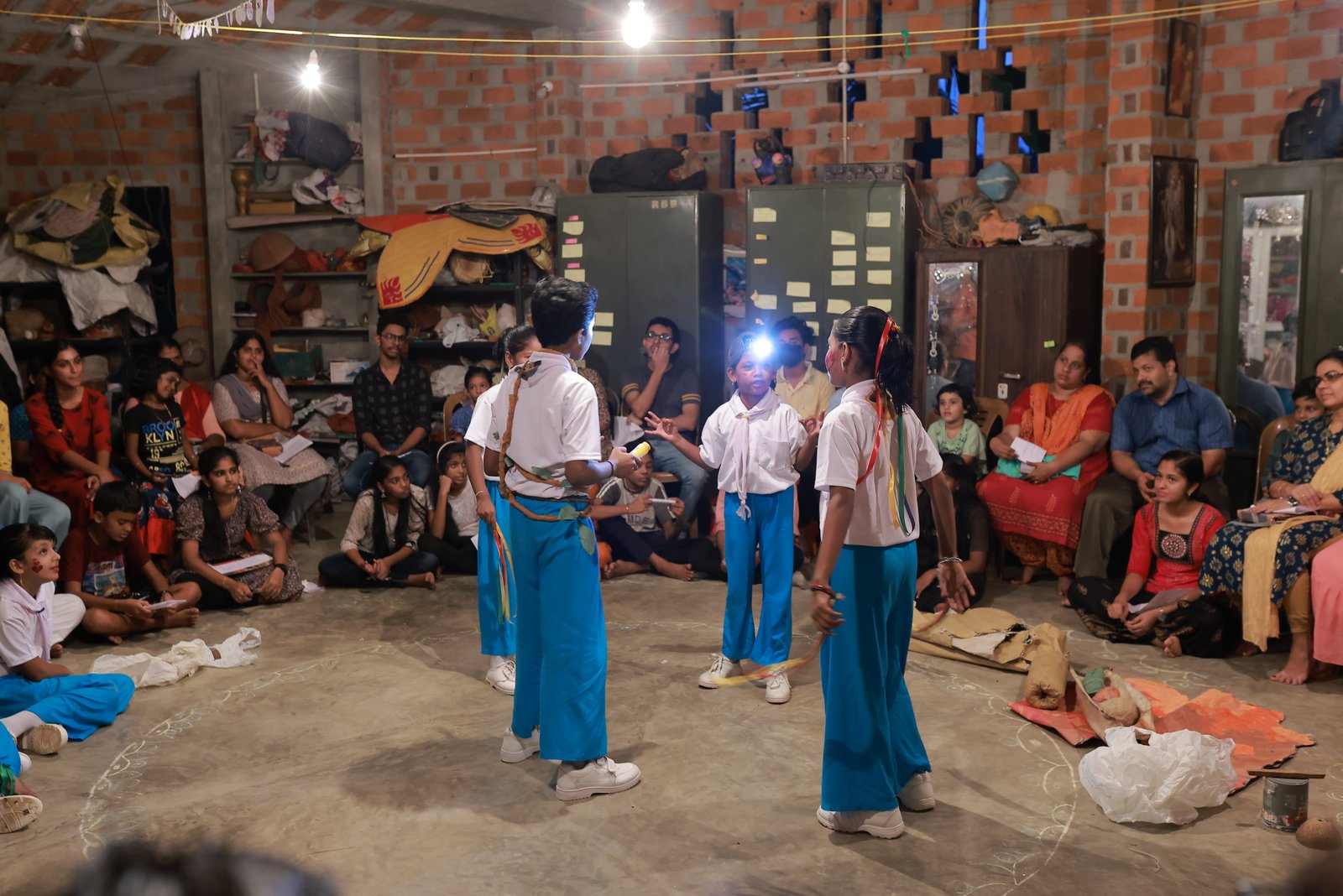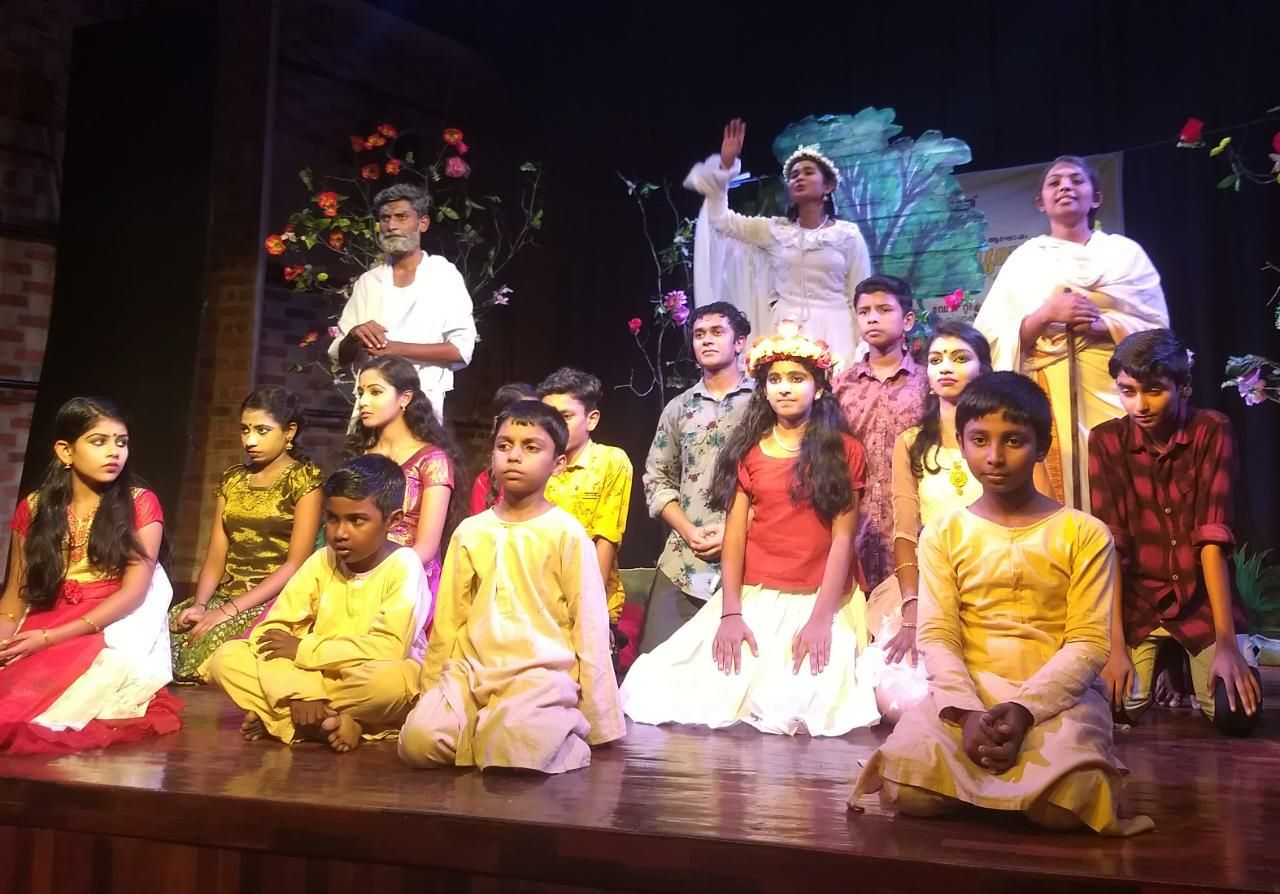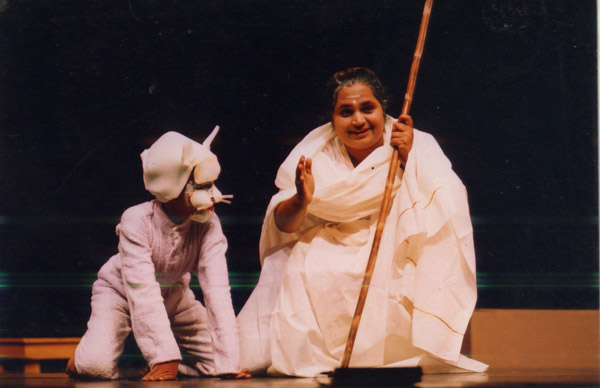 The experiment which began under the general guidance and support of the doyen of the Malayalam Theatre, Prof. G. Sankara Pillai, was ably sustained with missionary zeal and dedication by its Founder-President Guru Kochunarayana Pillai, himself a distinguished teacher, actor and artist of great repute. It has over the years, grown to such an extent that it is now a community center of a lot of meaningful activities. The centre has invited both national and international recognition for the innovative methods it adopts to attract the children and offer them a package of educational programmes, which sustain their interests, not only in academic activities but also in skill development programmes.
The experiment which began under the general guidance and support of the doyen of the Malayalam Theatre, Prof. G. Sankara Pillai, was ably sustained with missionary zeal and dedication by its Founder-President Guru Kochunarayana Pillai, himself a distinguished teacher, actor and artist of great repute. It has over the years, grown to such an extent that it is now a community center of a lot of meaningful activities. The centre has invited both national and international recognition for the innovative methods it adopts to attract the children and offer them a package of educational programmes, which sustain their interests, not only in academic activities but also in skill development programmes.
Rangaprabhath which began in 1970 with less than 40 children, gradually attracted the attention of parents and educational experts so much so, over the years it has become a community experiment in which parents, their children and the workers of Rangaprabhath work together in order to help the growing children to discover their talents, understand themselves and their surroundings, so that they grow into responsible adults. The programmes of Rangaprabhath aim at helping the children discover their latent capabilities which could go a long way in shaping their attitude to life, and enrich their personality.
‘A home away from home’ and ‘a school away from school’
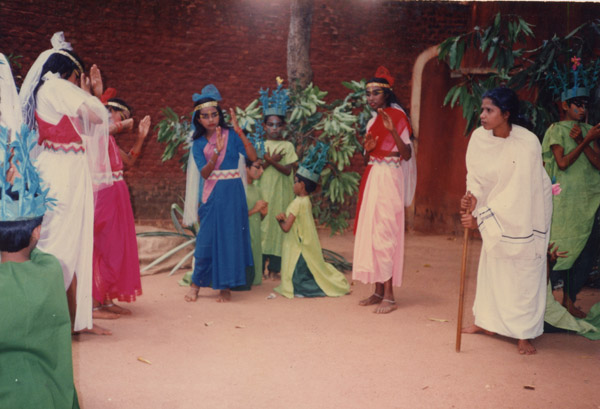 The Rangaprabhath experiment which is 39 years old now seeks to enquire into some of the complementing aspects of the complex activity of character formation and value creation by offering children such avenues of self expression that will bring forth the best in the child. Instead of boasting about achievements what is done here is to offer the children both supportive and supplementary avenues for extremely valuable creative expression. Over the years the Rangaprabhath has been hailed as “a home away from home” and “a school away from school” and the Rangaprabhath experiment has won now both national and International recognition.
The Rangaprabhath experiment which is 39 years old now seeks to enquire into some of the complementing aspects of the complex activity of character formation and value creation by offering children such avenues of self expression that will bring forth the best in the child. Instead of boasting about achievements what is done here is to offer the children both supportive and supplementary avenues for extremely valuable creative expression. Over the years the Rangaprabhath has been hailed as “a home away from home” and “a school away from school” and the Rangaprabhath experiment has won now both national and International recognition.
What the distinguished Gandhian scholar Prof. N. Radhakrishnan said about the Rangaprabhath experiment perhaps sums up the significance of this highly creative initiative:
“The well conceived and devotionally implemented child-centered programmes at Rangaprabhath need to be understood at its proper perspective. While one could see here elements and fusion of western and European approaches to value creation through the conscious efforts of Rangaprabhath, what stands out is the indigenous approach to education, known from the Vedic and Upanishad period to the challenging Gandhian approach of fostering creativity and co-operation rather than spirit of competition. There is a genuine need for more Rangaprabhath. These friends at Rangaprabhath offer the child uninhibited and uncontrolled opportunities for self-expression and creative discovery of beauty through the exercise of their faculties and sinews. What strikes our attention is the emphasis given to what one of the children’s theatre experts said that the child loves to learn while it hates to be taught”.
Rangaprabhath was established to promote the talents of the children. Teenagers and adults from the rural area and socially and economically backward area are given opportunities to involve themselves in a variety of creative activities. It is situated at Alumthara, a village in the suburb of Trivandrum city. It has an open air theatre and an indoor theatre attached to it. It has facilities to train children and youth in art, craft and vocational activities from the age of five to twenty five.
The children and youth are divided in to three groups
- Kadambam : for children (5 – 14 years)
- Kalari : for teenage group (15-30 years)
- Kalam : for full fledged adult theatre group.
The group was established in the year 1970 and was functioning primarily as a children’s theatre but expanded further including the other two groups, so that a child who is interested in theatre activity either as stage or back stage, as a director, actor, organizer will get a long span of time to have detailed experience as he grows up. No other institution in the state is at present having this out look and cultural perspective.





 Users Today : 1
Users Today : 1 Total Users : 6826
Total Users : 6826 Views Today : 1
Views Today : 1 Total views : 37863
Total views : 37863 Who's Online : 1
Who's Online : 1